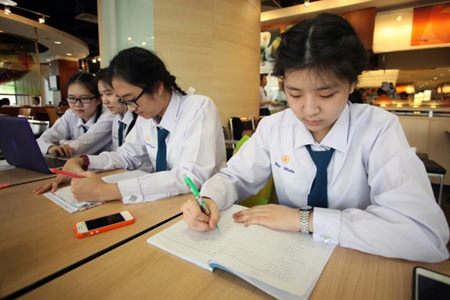Education has been cited as crucial to promoting reconciliation for the community and the country as a whole.
Speaking in the program “Reconciliation to Build the Nation,” on NBT Television, Permanent Secretary for Education Suthasri Wongsamarn said sparing no efforts to bring about national reconciliation is as an important mission of the Ministry of Education.
According to her, reconciliation must begin with unity in the family, before spreading to the community and the nation. Members of society should take pride in Thai culture and history. In this regard, the Ministry of Education is adjusting the school curriculum, which will incorporate three new subjects to raise awareness of the identity of the Thai nation. The three subjects include history, civic duty, and moral education.

The Ministry of Education is also working with the Election Commission of Thailand in developing a curriculum related to volunteer scouts. The curriculum will teach children and youths to be aware of the importance of democracy. The curriculum will be integrated with that prepared by the Election Commission and will be taught at both primary and secondary education levels.
In addition, the Permanent Secretary the Ministry of Education has included the sufficiency economy philosophy in the National Education Plan since 2002. The philosophy has been incorporated in social studies at the basic education level, which encourages learners to adopt the sufficiency economy concept in leading their lives.
In its two-month progress report, the National Council for Peace and Order stated that the Ministry of Education had been instructed to conduct studies, collect data, and organize brainstorming sessions with members of various sectors to formulate a roadmap for education reform. The roadmap will be used as a framework for the development of human resources in the long term.
Key reform issues will include capacity-building for teachers and education personnel to enable them to become role models for children and youths. They also involve greater access to education via satellites in order to reach out and provide education opportunities to schools that are small in size and in remote areas all over the country.
Also, there will be curriculum reform, in which history, civic duty and morality classes will be added as stand-alone classes, separate from social studies. The aim is to provide knowledge and understanding about history and civic duty, as well as to promote a sense of pride in being a Thai citizen. Another objective is to promote loyalty to and respect for the three major pillars – the nation, religion, and the monarchy.
Moreover, the curriculum reform will promote a sense of responsibility, and instill in them the idea of placing the interests of the nation and the common good over personal gains. This approach will be applied to all schools beginning in the next education term.




